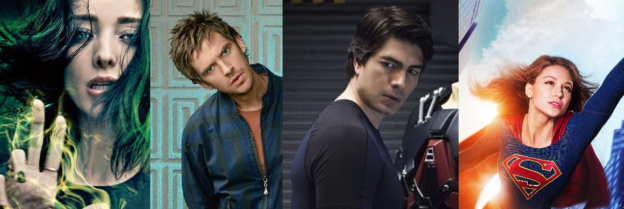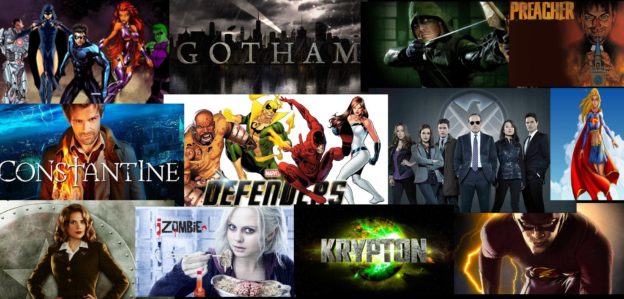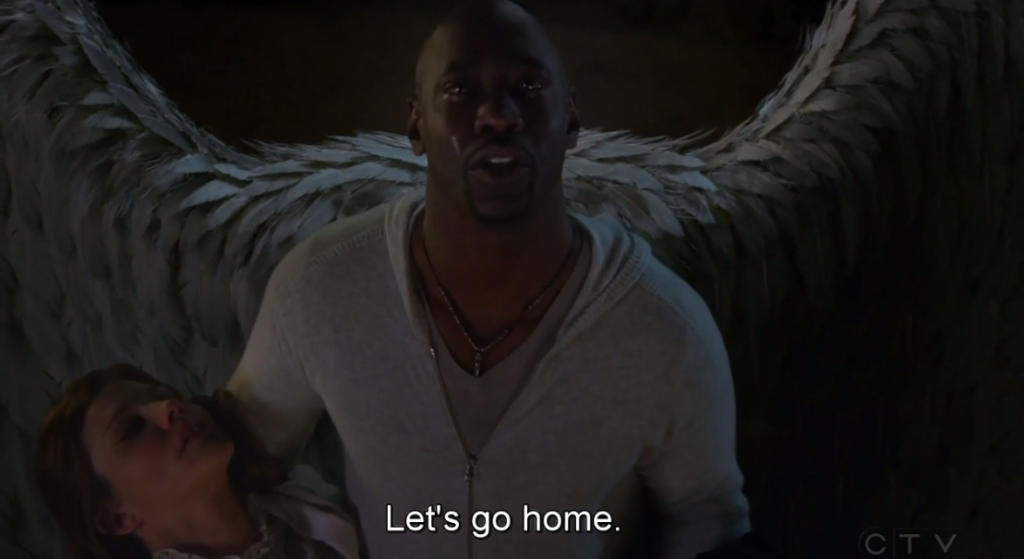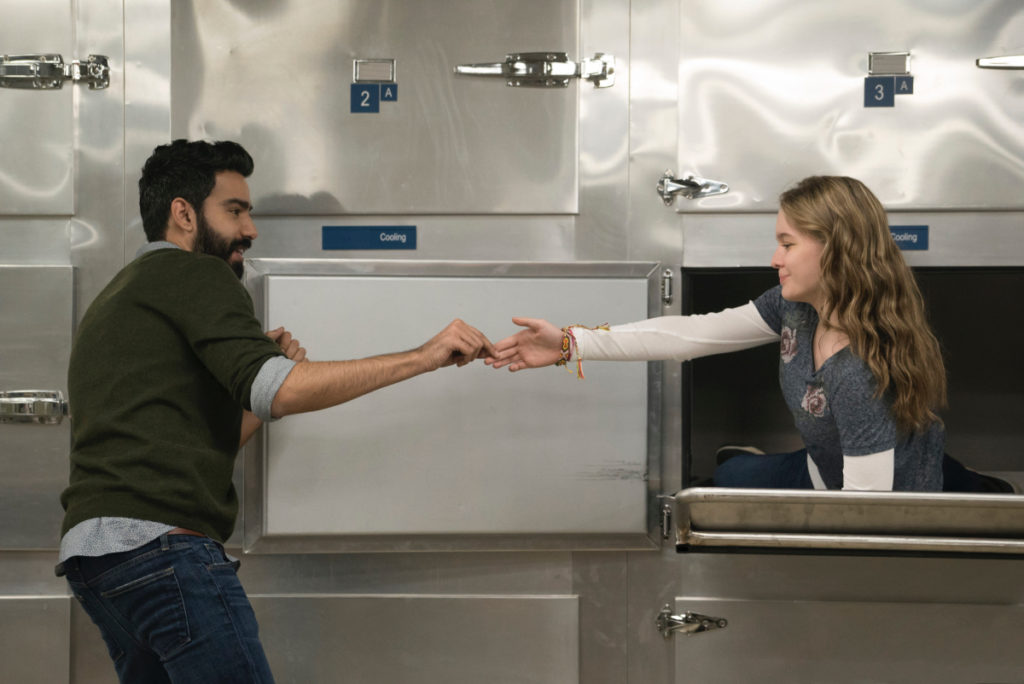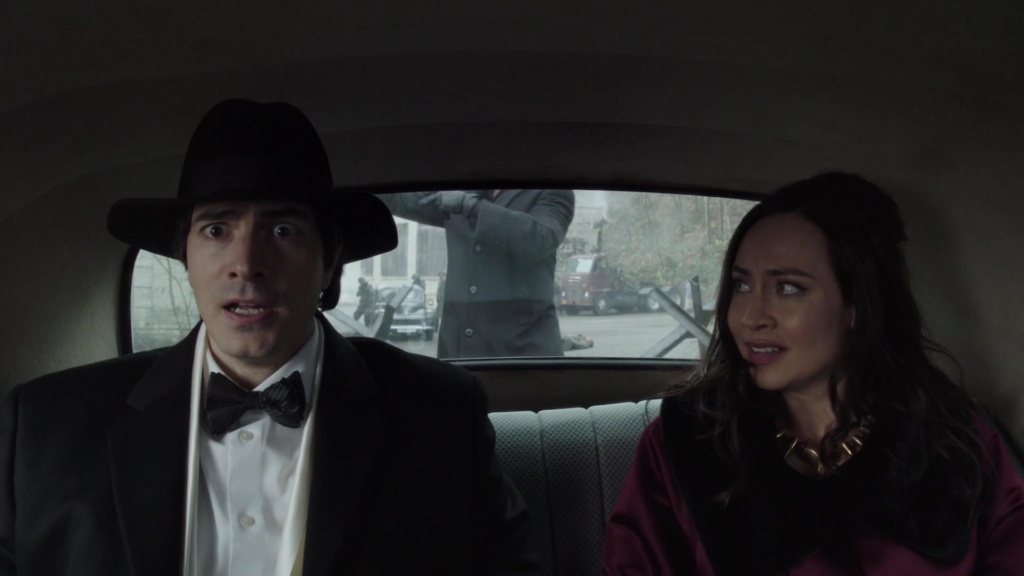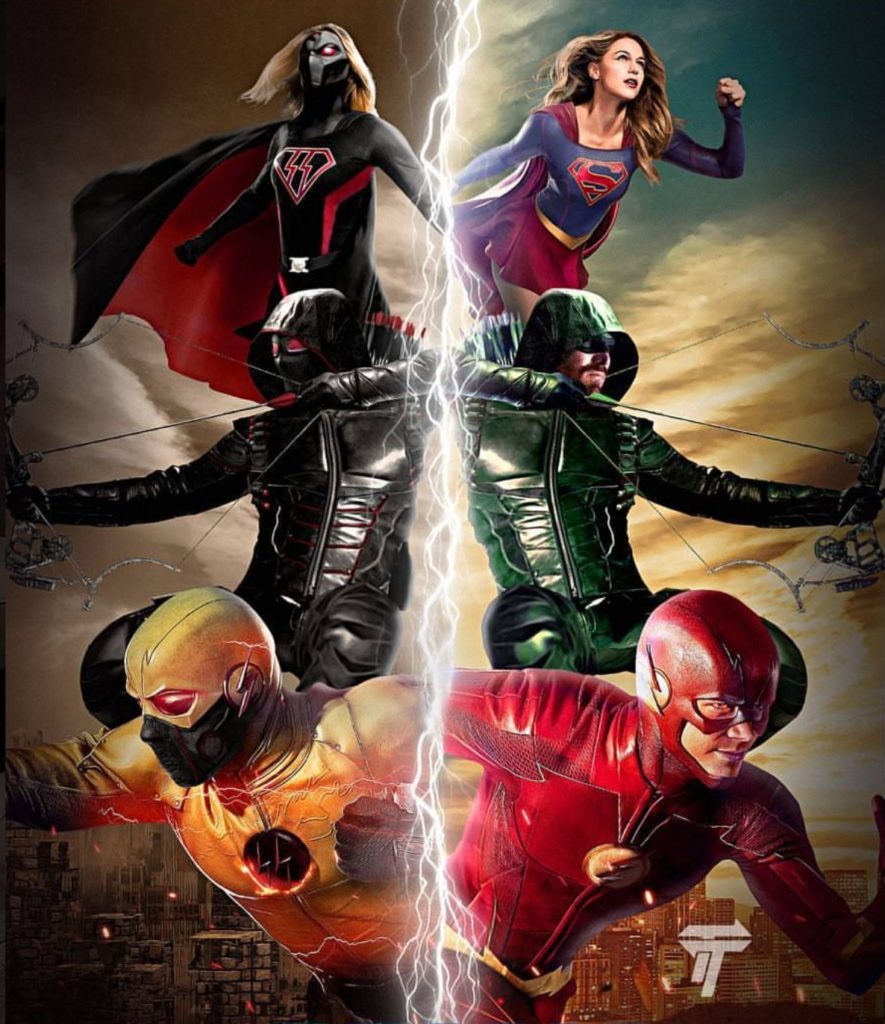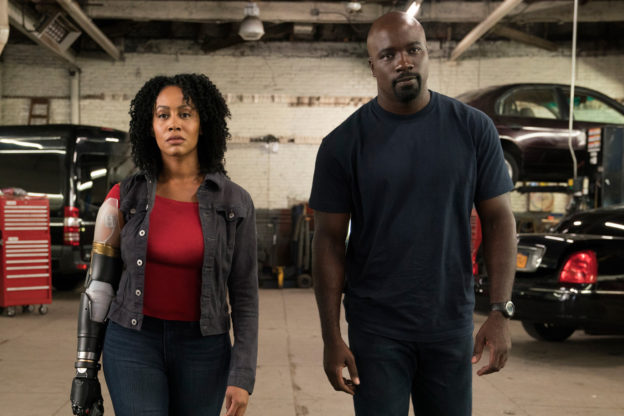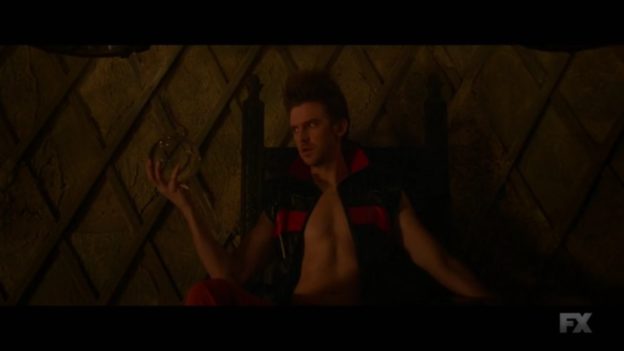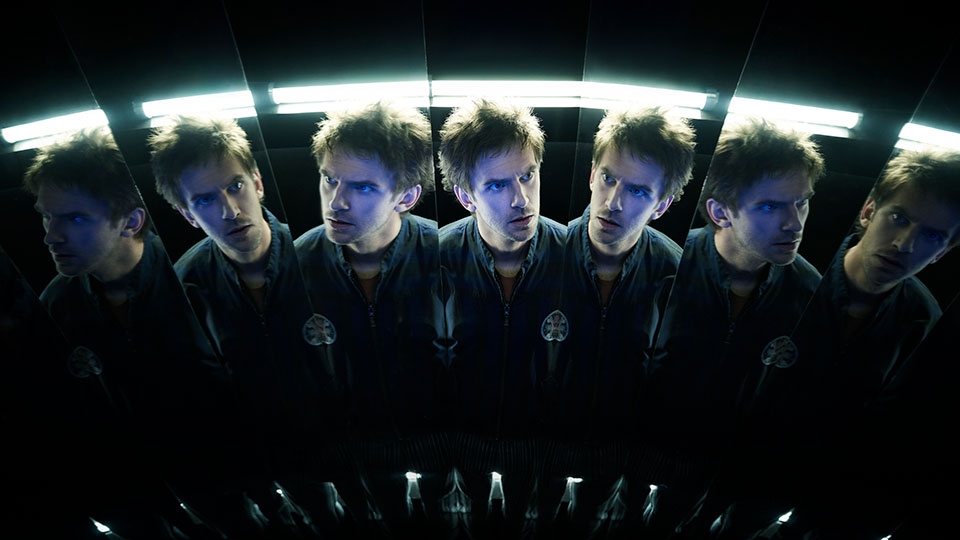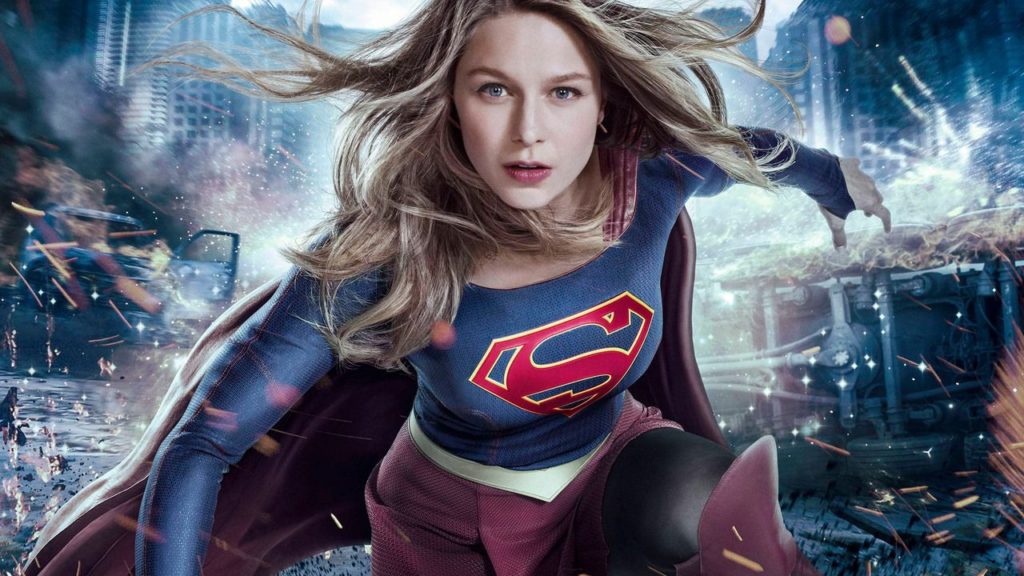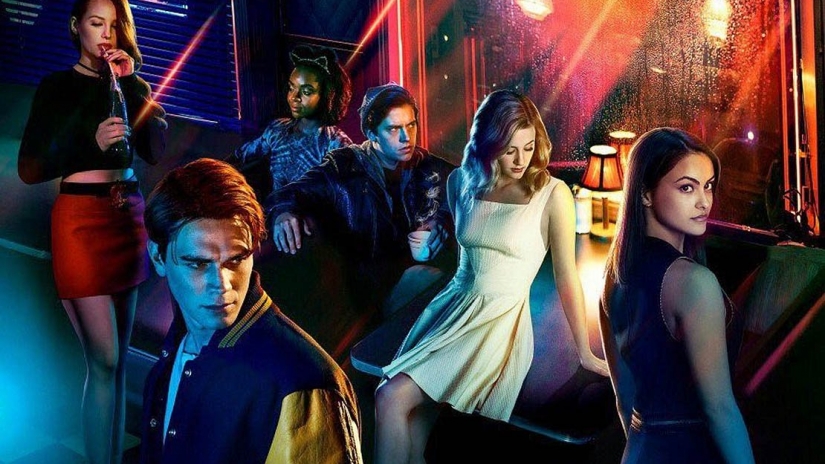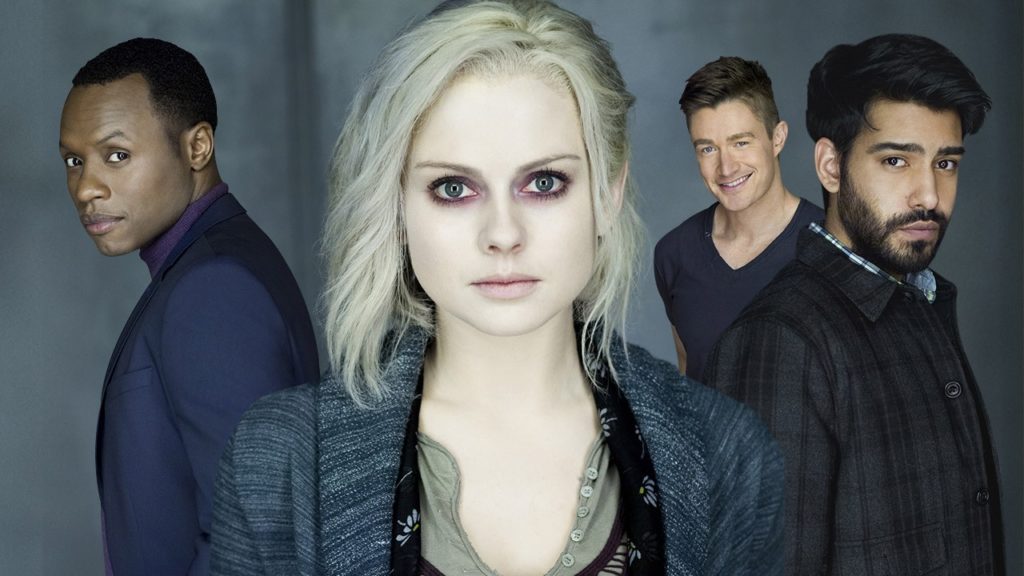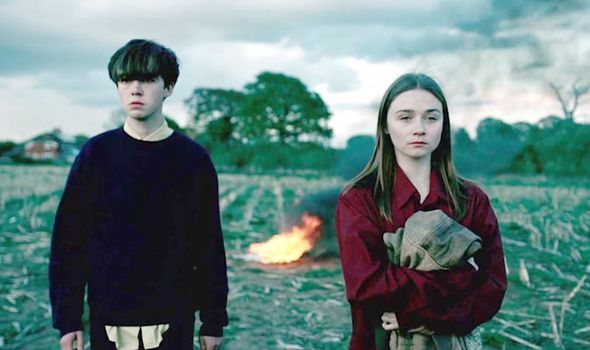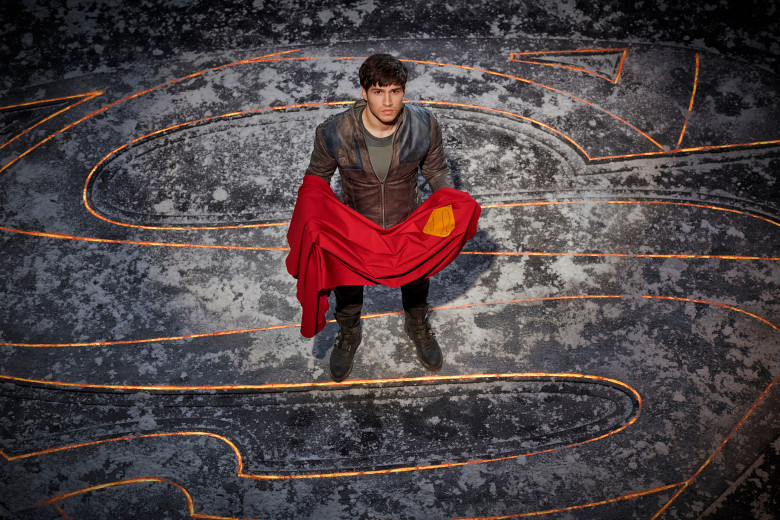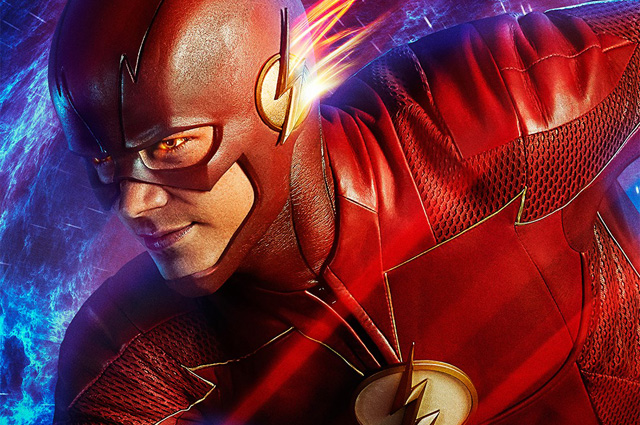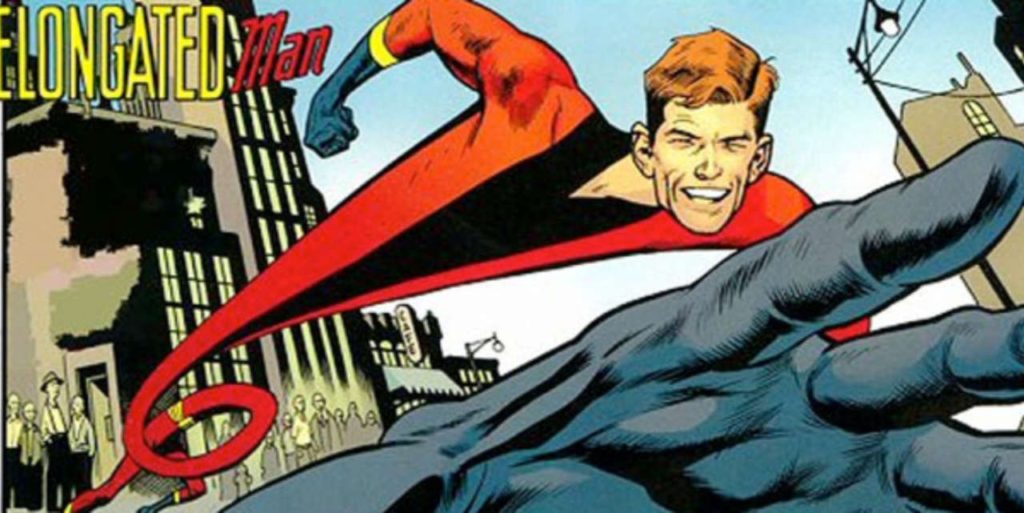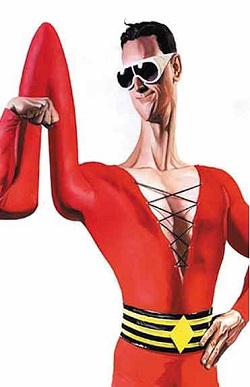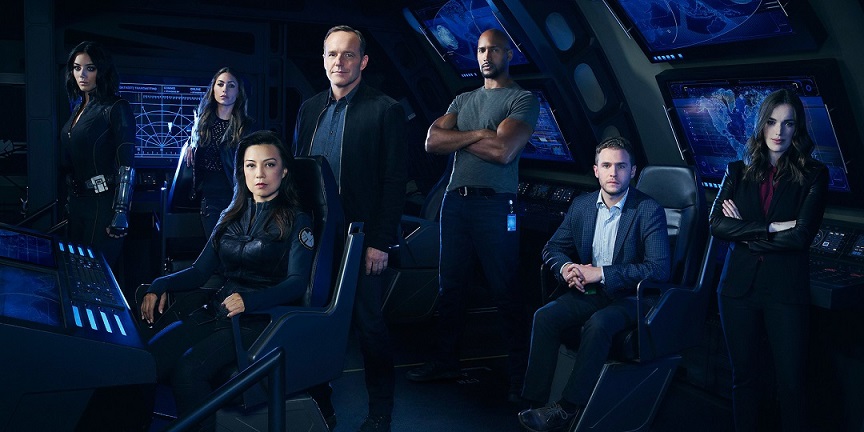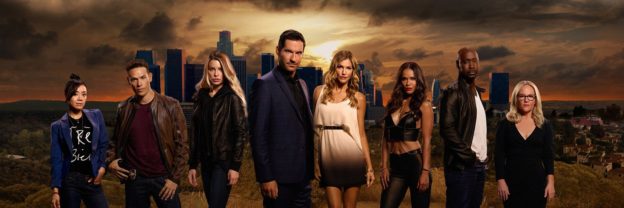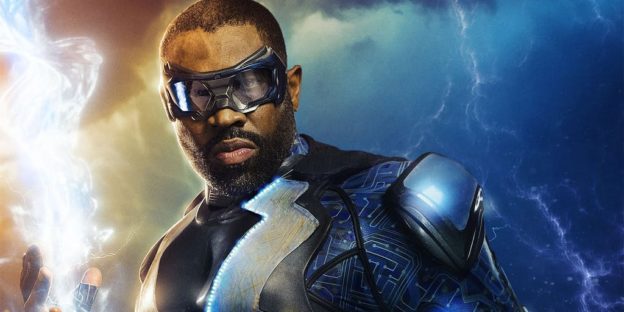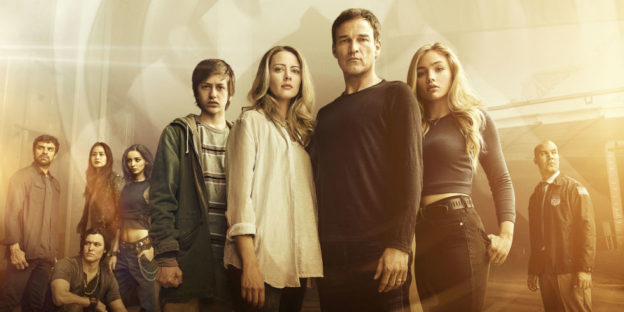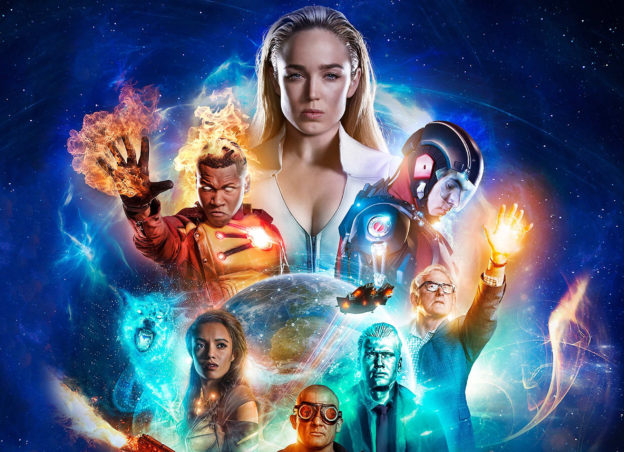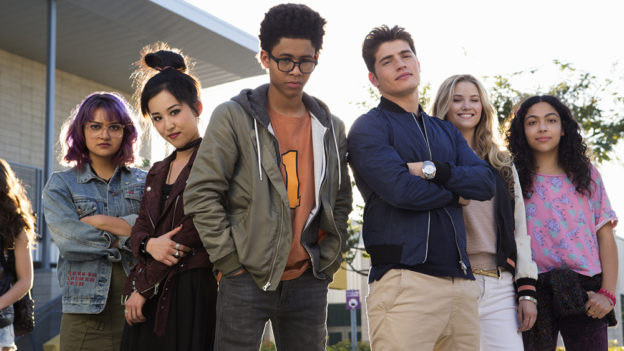Round two, in which we tackle the season’s best characters over many categories. We’ve got new faces, returning champions, upsets, and two of the hardest-fought categories there are.
Lots to get through, let’s get to it.
(A kind of significant spoiler for Jessica Jones season two lies ahead)
Best Male Lead!
Good lord but this category was a slugfest. Stellar work from some notable names, any one of whom would have taken gold in past years. But only three(ish) can make the podium.
I guess nothing is technically stopping me from just handing out six titles, “Gold, Also Gold, Still Gold, This One’s Gold Too,” but once you have a format you should really stick to it, you know?
Honourable mentions: I honestly can’t honourably mention these guys enough. What we have this year is seven stellar performances in a race that came down to inches. Cress Williams makes an impressive debut as the titular hero in Black Lightning; Jon Bernthal continues to do great work as Frank Castle in The Punisher; and Dominic Cooper’s Jesse Custer from Preacher was a lock for the podium until our gold medalist pulled some serious moves late in the year.
Bronze: Tom Ellis as Lucifer Morningstar, Lucifer
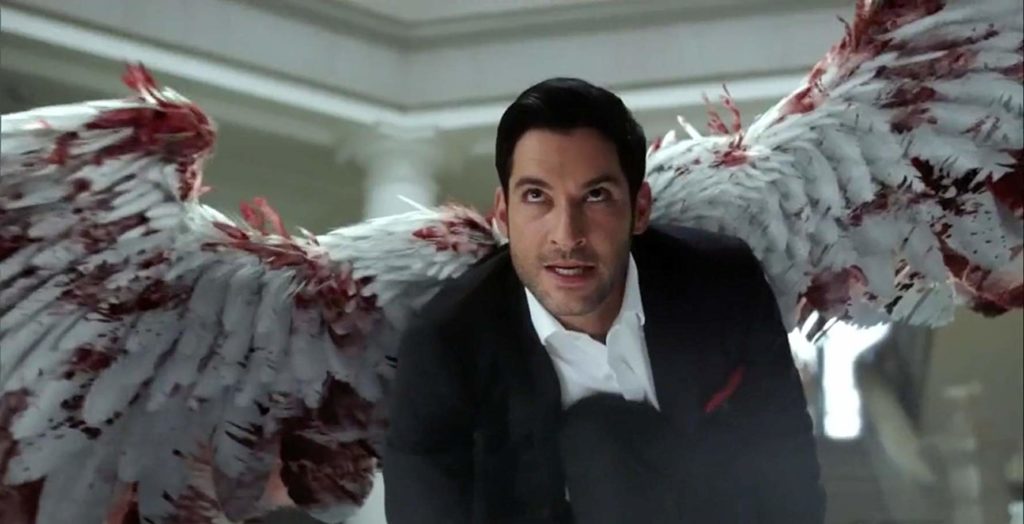
This season Lucifer dealt with an identity crisis, made a rival into a friend and had a friend become an enemy, and finally confronted his feelings for his crime-solving partner Chloe Decker, and throughout it all Tom Ellis crushed it. The charm, the rage, the way he slays a one-liner, he’s phenomenal in this role. No wonder he fought so hard to keep it.
Silver: Peter Serafinowicz & Griffin Newman as The Tick & Arthur, The Tick
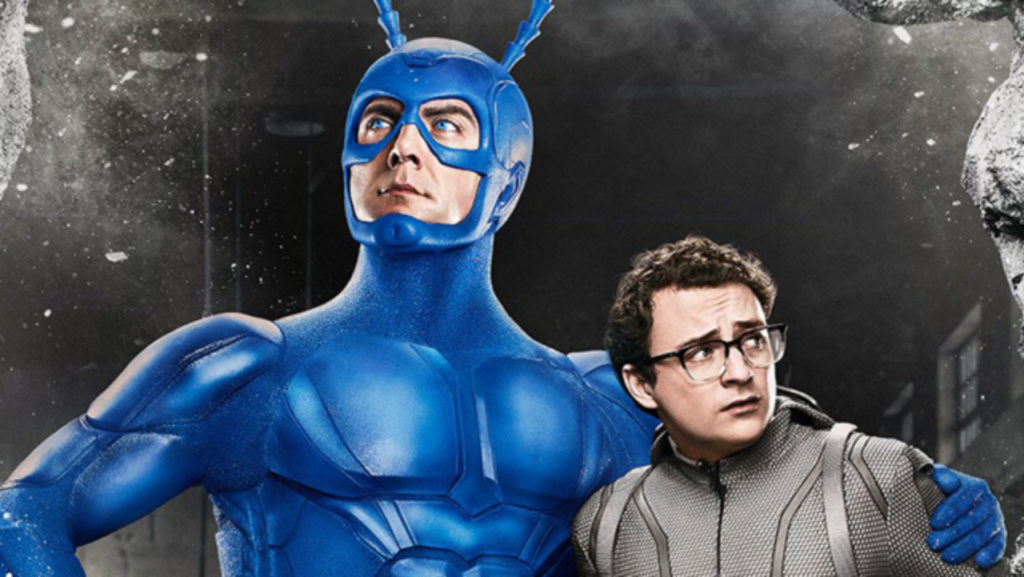
So, yeah, three-ish. Because one of the year’s better entries hinges not on one hero, but a double-act between an invincible but easily confused hero and his anxiety-ridden but clearheaded partner.
Peter Serafinowicz is note-perfect as the Tick, who makes up with strength and unbending confidence in destiny what he lacks in clarity about who, what, and why he is. And Griffin Newman gives a star-turn as the show’s real central character, Arthur, terrified of what might be his heroic destiny, but driven by a need to see the Terror brought down. The Tick is the heart, Arthur is the soul, and they’re perfect together.
Gold: Dan Stevens as David Haller, Legion
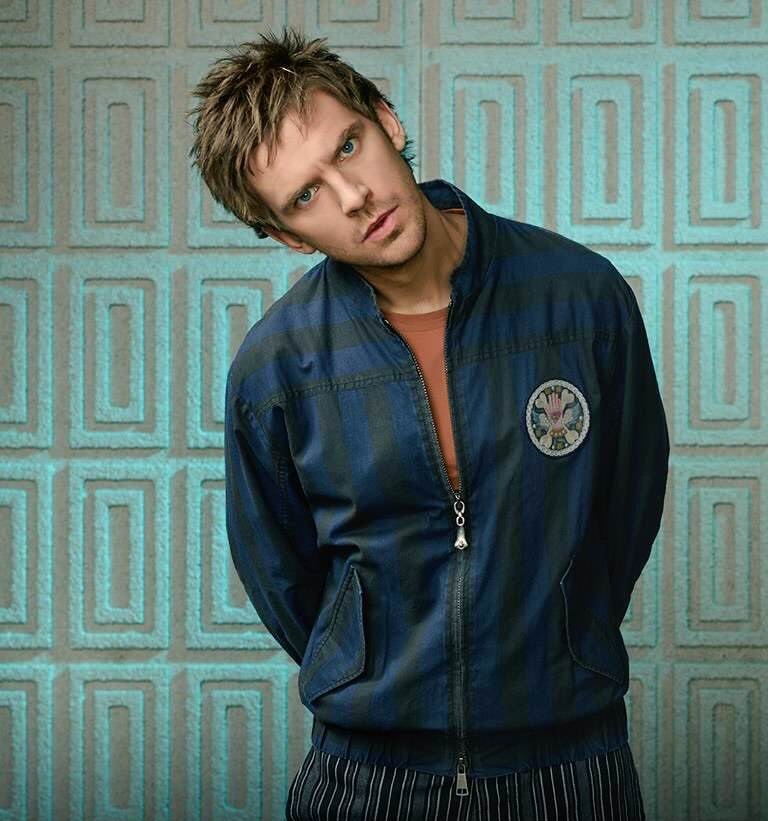
Now… if I were calling this “Best Male Hero,” this might have gone a little different, because David Haller has a few flaws in the “hero” department, strictly speaking. But as the male lead, Dan Stevens brought his performance to a new level. Even putting aside his confusion and hope and rage and grief as the season plays out, even putting aside the subtle but growing hints that David might not be all we think he is, even putting aside “Behind Blue Eyes…” and damn but that’s all some impressive stuff to put aside… I likely would have had to give this one to him based on “Chapter 14” alone, in which David imagines all the other ways his life could have gone. David the remorseless billionaire (who might be more Farouk and than David); David the heavily medicated schizophrenic just trying to get by; David the homeless man screaming at nothing, and all of them are just attempts to distract himself from the powerful grief he’s feeling in the wake of the previous episode’s revelation. And if that weren’t enough, by the finale he’s having entire arguments with buried aspects of himself, meaning there are whole scenes that are just three distinct Davids.
Dan Stevens gave us one of the great virtuoso performances of the season, comic TV or otherwise. I’m a little apprehensive about where the show’s going next season, but I’m confident that Stevens will be worth watching when it happens.
Best Female Lead!
In a perfect world, this category would be every bit as competitive as its male counterpart, but sadly we are not in that world yet. But it’s getting closer. Much closer than year one of this series, to be sure, and if there’s a lack of female leading parts in this genre, it sure ain’t from lack of talent.
Honourable mentions: Simone Missick’s material finally started to rise to her level on Luke Cage; Rose McIvor remains a delight as iZombie’s Liv Moore; Nafessa Williams made Anissa “Thunder” Pierce as compelling a hero as her lightning-tossing father on Black Lightning; Ruth Negga will be a shoo-in for her work on Preacher the second she gets a proper story; and last year’s champion, Caity Lotz, is still killing it on Legends of Tomorrow. There are just a few ladies inching ahead of the pack.
Bronze: Jessica Barden as Alyssa, The End of the F***ing World
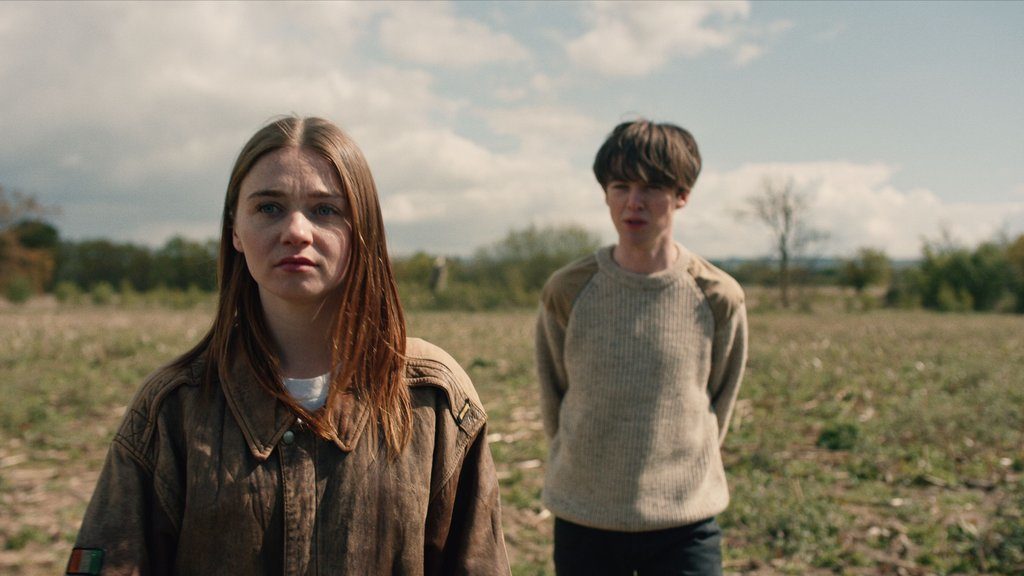
Somehow we’re in a place where male protagonists can be serial womanizers and alcoholics like Don Draper or mass murderers like Frank Castle, and that’s all fine, but if a female protagonist is less than perfect then out come the judgements. Other people, women specifically, have made this argument better than me… say, right here, or here… but the unlikable female protagonists of the world deserve as much love as the Don Drapers and Zack Morrises. Because seriously, as a YouTube series I’ve begun following accurately puts it, Zack Morris is trash.
This brings me to Alyssa.
Alyssa is making no effort to be “likeable.” In order to deal with a lack of attention from her mother and the exact wrong sort of attention from her step-father*, Alyssa has built a shell of unpleasantness and hostility, a suit of emotional armour whose physical counterpart is her baggy coat that once was her father’s. In lesser hands, and with lesser material, we might be rooting for James to follow through on his plans to kill her.
But Jessica Barden shows us the pain and fear hidden underneath her angry exterior, the young woman just trying to find a way to exist in a world that doesn’t seem to want her. She makes an incredibly sympathetic character out of someone trying her best to be unloved… well, except by James.
She had me rooting for these messed-up crime-spreeing kids right up until the cut-to-black end. Okay, fine, her co-star Alex Lawther helped with that, but this ain’t his category.
(*If I had a category of “characters I want to see fed into a wheat thresher,” that step-father would be right at the top, under the Thinker.)
Silver: Melissa Benoist as Kara Danvers/Zor-El, Supergirl

Silver medalist three years running. Well, there’s a reason for that. She’s great at her character and her character is great. Her struggles at dealing with the return of her now-married lost love Mon-El; her determination to find a non-lethal solution to Reign, choosing love over hate; her silent and painful shock over events in the finale; “Is this what exercising is like? Why does anyone exercise?”; and of course that hella cute rendition of “Intergalactic Planetary” we discussed last time, all made Kara the DCW-verse’s best lead. Looks like she’s set to play double duty again next season. Well, based on Crisis on Earth-X, she is up for it.
There is just, once again, one person who edged her out.
Gold: Krysten Ritter as Jessica Jones, Jessica Jones
(And to a lesser extent, The Defenders)
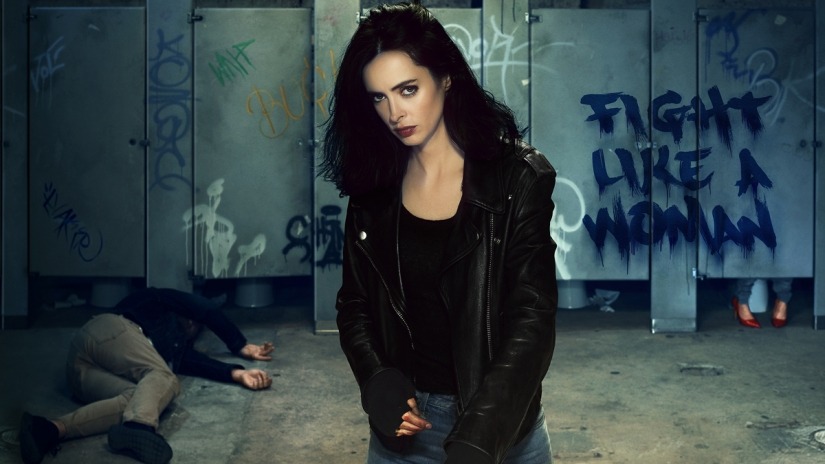
Krysten Ritter’s performance as the hard-drinking, anti-social, haunted-by-trauma PI Jessica Jones was excellent in her first season, and one of the best parts of The Defenders, despite her being stuck in some Iron Fist nonsense. This season, she hit new levels as The Killer (goddamn but that villain needed a better nickname) showed Jessica a bleak and horrifying possible future, a frightening look at what she herself might become if she keeps down the path she’s on. Jessica’s emotional breaking point, “AKA Three Lives and Counting,” is a riveting hour of television thanks a combination of Ritter’s performance and someone else we’ll be discussing in a minute.
She is, simply put, phenomenal. Why don’t she and Dan Stevens have Emmy nominations, exactly? All award shows are nonsense.
Um.
Except this one.
(Which, again, is not a show.)
Best Male Supporting Character!
They’re comic relief, emotional support, love interests, and minor villains, or some combination thereof. They’re the supporting cast, the fine line between a strong show and some vigilante ranking to themselves on a rooftop.
Honourable mentions: Shaun Sipos nailed Krypton’s best one-liner as Adam Strange, that being “Mr. Strange was my father. Call me Doctor… actually, better stick to ‘Adam.'” Preacher’s Joseph Gilgun deserves a shout-out just for Cassidy’s hotel drug-binge with the angel Fiore (sadly his plotlines were kind of static or reactionary last season); James Marsters put his back into the most interesting character arc on Runaways.
Bronze: Hamish Linklater as Clark, Legion

When we first met Clark in the pilot, he was just an unnamed interrogator for the sinister mutant-hunting organization Division 3. Then in the finale, they walked us through everything he’d been doing since the Summerland Group’s explosive and violent rescue of David in said pilot. Suddenly instead of a nameless bigoted bureaucrat, he was a dedicated soldier, trying to keep the trauma of his… significant injuries from harming his relationship with his husband and adopted son, who loved him and whose hearts broke to see him hurt so bad. Clark refused desk duty when he returned to work. His country was still at risk, the mutants who slaughtered his men were still at large, so if they wanted him behind the desk, it would have to be, as he put it, “a field desk,” because he was going to be out in the field until this matter was resolved.
And when the Shadow King was exposed, he had the strength of character to say “You’re right, that’s a worse threat, I’m on board.”
In one montage, lasting a small fraction of one episode, Hamish Linklater turned a fairly generic small-V villain into a truly sympathetic character, one worth rooting for. Something Agent Jace couldn’t manage in an entire season of The Gifted despite essentially losing his young daughter twice.
This season, as the former Summerland Group has joined forces with Division 3, Clark’s an important part of the team. And he’s a loyal teammate, too… but he never fully takes his eyes off of David. He sees the threat David’s power level presents, and he’s not going to turn his back on it.
Linklater’s performance might not be as big as Aubrey Plaza’s or as theatrical as Jemaine Clement’s can be, but he is consistently solid, always interesting, and it was great having him upgraded to regular. Especially since he may be even more important next season.
David may be our protagonist, but Clark might be the hero we need. Well, Clark and Syd. But this isn’t Syd’s category.
Silver: Brandon Routh as Ray Palmer, Legends of Tomorrow
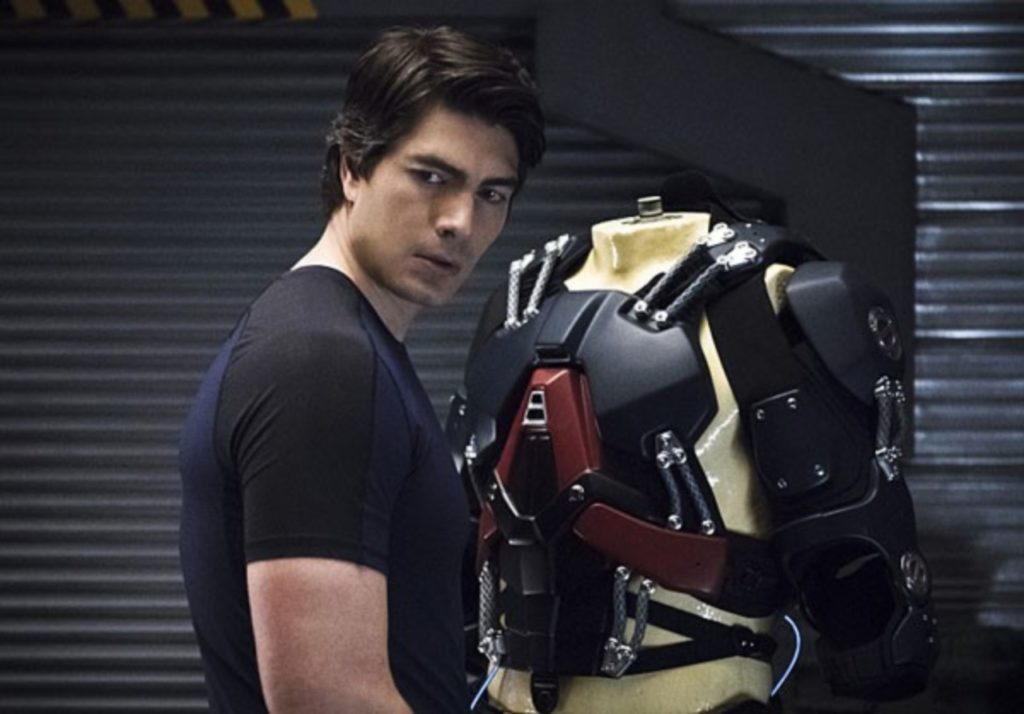
It’s weird calling Brandon Routh a “supporting character,” since he’s currently top-billed. But the politics of credit order is what it is.
Legends found a new approach to Ray Palmer this season: the eternal optimist. No matter what’s happening, Ray’s got a smile and a can-do attitude, even when they’re visiting his own childhood and learning that it wasn’t as nice as he thought. Only Ray would care about saving a baby Dominator (the alien invaders from last season’s crossover), only Ray would save Nora Darhk’s life in the hopes that she’s not beyond redemption, only Ray could cling to that belief post-torture by Nora and her father Damien, only Ray and his love of musicals (I feel that was new, but sure) could break through Zari’s wall of cynicism.
And they managed all of that without Ray’s relationship with Nora or Zari becoming romantic.
And wow but Brandon Routh is just killing it. The goofy grins, the hope and cheer, the moral quandary over Nora’s fate, the occasional musical number, trying to conceal an alliance with Damien from his teammate, using a Tickle-Me-Elmo-esque doll called Beebo to teach Vikings that climate change is real (ya heard me), escaping captivity and torture and being excited that his team left him a sink of dirty dishes to clean, he nails every bit of it. Brandon Routh as always been good at this character, but this is his best season yet.
Gold: Rahul Kohli as Dr. Ravi Chakrabarti, iZombie

Rahul Kohli’s always been great as Liv’s boss and confidant, Ravi Chakrabarti. He’s got a lot of wit and charm, and brings a great deal of heart to the show. Ravi’s long been one of the best parts of iZombie.
Then this season came along, and Ravi’s attempt at zombie vaccine came with a side effect: once a month, for a few days, Ravi goes full zombie, brain cravings and everything. Which means this season Ravi got to have his personality shifted by some brains. We had nudist Ravi, heroin addict Ravi, and best of all, vain Instagram starlet Ravi, which was hilarious. And aside from that, working with Isobel gave us Ravi the reluctant parent… and opened the door for Rahul Kohli to deliver the most heartbreaking scene in the show’s history. Which is saying something, since three out of five of Liv’s love interests have been killed right in front of her.
This man is a treasure. Can he be Doctor Who when Jodie Whittaker’s ready to move on in 2022?
Best Female Supporting Character!
There may not be as many female leads as we might like, but damn if they aren’t cleaning up in supporting roles.
Honourable mentions: Gemma Whelan as the police detective realizing that maybe her partner’s not worth being infatuated with and that the teens they’re chasing might not be so bad on The End of the F***ing World; Tala Ashe’s dry cynicism as Zari was fun on Legends of Tomorrow; the divine Aubrey Plaza as Lenny in Legion; Wallis Day brought Nyssa-Vex from kind of generic femme fatale to a highlight of Krypton, to the point where I’d actually be fine with her being Superman’s grandmother; Madelaine Petch embraced being a full-blown over-the-top gothic heroine as Cheryl Blossom on Riverdale, and it is awesome; and over on Supergirl, Katie McGrath is still excellent as Lena Luthor, and Chyler Leigh’s ugly-crying superpowers remain as Alex Danvers. She just got nudged off the podium for the first time by some other amazing supporing ladies.
Bronze: Aimee Garcia & Tricia Helfer as Ella Lopez & Charlotte Richards, Lucifer
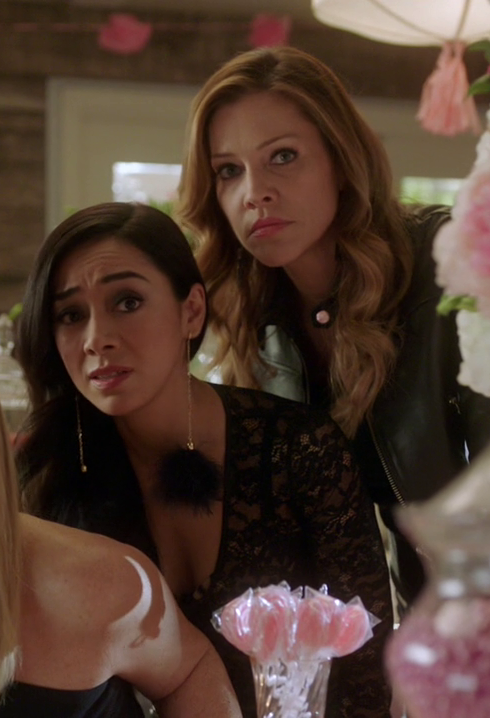
Charlotte and Ella– Well why don’t you come over here and MAKE me choose between them.
That’s what I thought.
Charlotte and Ella were both introduced in season two, and are two of the main reasons Lucifer went from guilty pleasure to appointment viewing that year. Aimee Garcia plays Ella Lopez, eternally positive CSI, while Tricia Helfer played the Goddess, Lucifer’s mother and angry ex-wife to God, who occupied the recently murdered body of sleazy defence attorney Charlotte Richards. Ella was simply a ray of sunshine, brightening every scene she appeared in, but “Charlotte” brought the show to a whole new level.
Well, things have shifted since season two. With Goddess now departed from the world as we know it, Charlotte’s soul is back in her un-murdered body, but there are some complications. She has no memory of the year in which Goddess was joyriding in her body, but what she does have is a dim but terrifyingly haunting recollection of spending a year in Hell. Amoral lawyers tend not to make it to the Good Place. Charlotte’s now desperate to avoid returning to Hell, and thus is trying to reform in any way she can… but are good deeds truly good if you’re only doing them for selfish reasons? If your redemption is motivated by self-preservation, is it really redemption? It gives Tricia Helfer a whole new and meaty character to dig into, and she once again excels at it.
Ella, meanwhile, remains an eternal delight. They’ve leaned into how delightful the character is to the point where she got her own spotlight episode, “Boo Normal,” which paid off a few hints about Ella talking to ghosts in an unexpected but much appreciated fashion. Aimee Garcia carried the episode so effortlessly we barely even noticed how little Lucifer was in it.
I’m not saying Tom Ellis isn’t a generous actor, in fact I suspect that he is, but regardless it is not easy to steal a scene from Lucifer. These two, however, manage it regularly. Highly talented ladies playing great characters.
Silver: Emma Dumont as Polaris, The Gifted
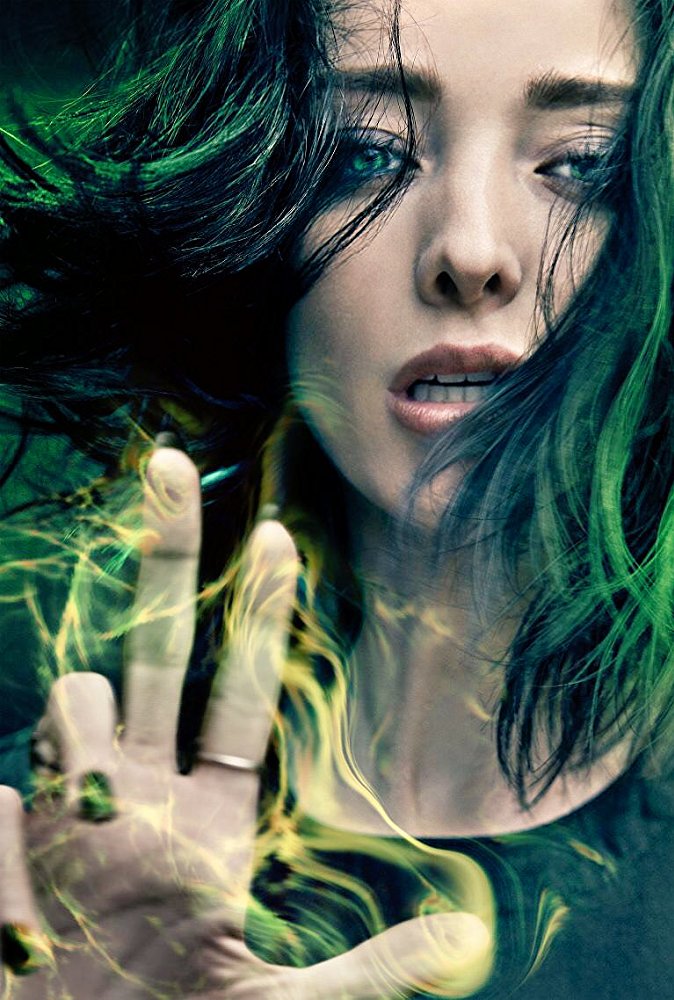
(Full disclosure… I did meet Ms. Dumont in person back in April, and found her to be an absolute class act, clever and funny and much friendlier than she needed to be, but I already had all of these opinions by then, so they’re still valid.)
The focus of The Gifted might be the Strucker family, but the show’s beating heart is Polaris. Her relationship with Eclipse, her struggles in prison early in the season, the stakes of her fight for mutantkind’s future being drastically raised by her unborn child, and being one half of the debate over which path is better, Professor X’s or Magneto’s. Given her parentage and mistreatment at the hands of the mutant-hating authorities, she leans a little to Magneto, even if the producers won’t let her say his name. And all of this without the endless hand-wringing we get from Eclipse and the Struckers.
It became clear within a couple of episodes that The Gifted was at its best when it focused on Polaris, and Emma Dumont’s performance has a lot to do with that. She’s stellar. Looking forward to what she gets up to from here.
Gold: Carrie-Anne Moss as Jeryn Hogarth, Jessica Jones
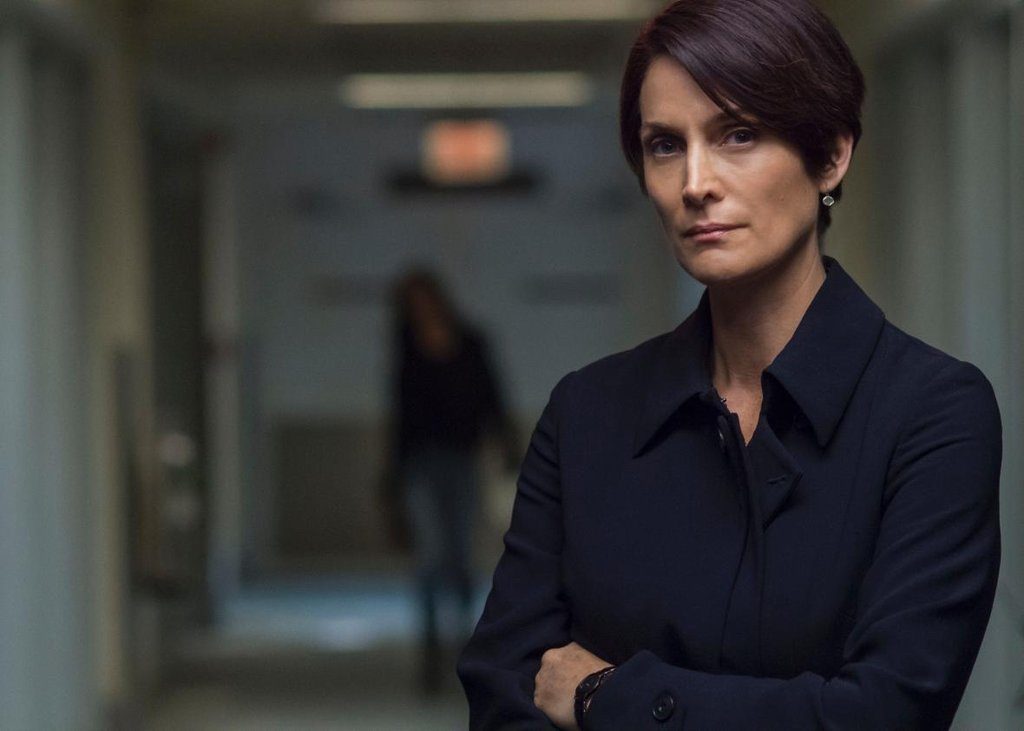
Hey, remember last time, when I said that Jeryn Hogarth’s story on Jessica Jones was the best of the year, how it didn’t even matter how unconnected it was from the main plot, and how that was mostly due to Carrie-Anne Moss’ riveting performance?
So with that in mind, how else was this going to go? Of course Gold goes to Carrie-Anne Moss.
Damn she was good.
Best Villain!
The names that came out to plays villains this season. Michael Emerson, Kirk Acevedo, Alexander Siddig, John Noble, Jackie Earle Haley, Signourney goddamned Weaver. An immense amount of talent menacing the season’s various heroes. But who had the menace? Who had the gravitas? Who made evil fun to watch? In short, whose evil scheme reigned supreme?
Honourable mentions: Odette Annable did double duty quite well as Samantha Arias and the worldkiller Reign on Supergirl; Jackie Earle Haley just missed the podium with his spooky and funny turn as the Terror on The Tick; Billy Russo was exactly the force of violent nature needed to be a nemesis of The Punisher; and this is the first time since he started playing the role that Neal McDonough hasn’t made the podium for his endlessly entertaining performance as Damien Darhk, and that kills me a little, because damn but he and Courtney Ford (as Nora Darhk) were a blast.
But given these great villains, what choice did I have? Very little.
Bronze: Janet McTeer as the Killer, Jessica Jones
That spoiler is coming up after the photo, by the way, in case you want to skip to Silver or anything.
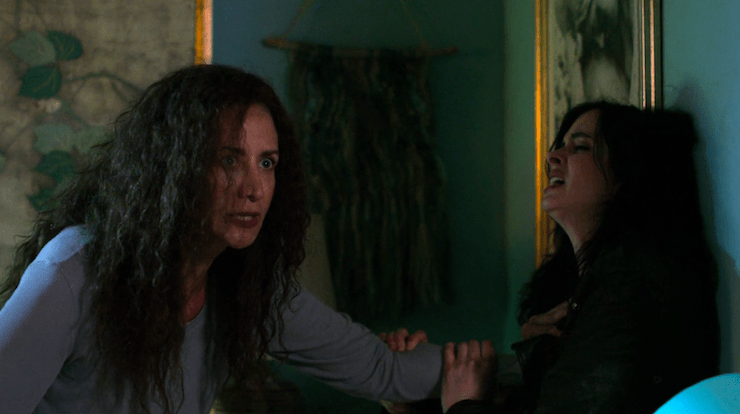
In the early parts of the season, Jessica is tracking a killer, one as strong as she is but far more ruthless. After a long and winding road, she and the Killer (god damn she needed a better nickname…) finally come face to face, just in time for Jessica to learn the truth… the Killer is Jessica’s mother, Alisa Jones, who also survived the car wreck Jessica thought killed her whole family, and also ended up with powers after some well-intentioned but ethically questionable experiments by Dr. Karl Malus. But where Jessica is a surly alcoholic with some anger issues, Alisa’s mood swings are far more dangerous. Alisa’s rage turns homicidal with alarming little provocation.
Janet McTeer takes Alisa from a calm and loving mother to a savage, rage-filled monster on a dime, but stays believable in whichever mode she’s in. She sells the rage that makes Alisa a threat, and the love that makes Jessica willing to risk everything to help her, and the sadness at knowing that she’ll always be a weight around her daughter’s neck.
Silver: Navid Negahban as Amahl Farouk/the Shadow King, Legion
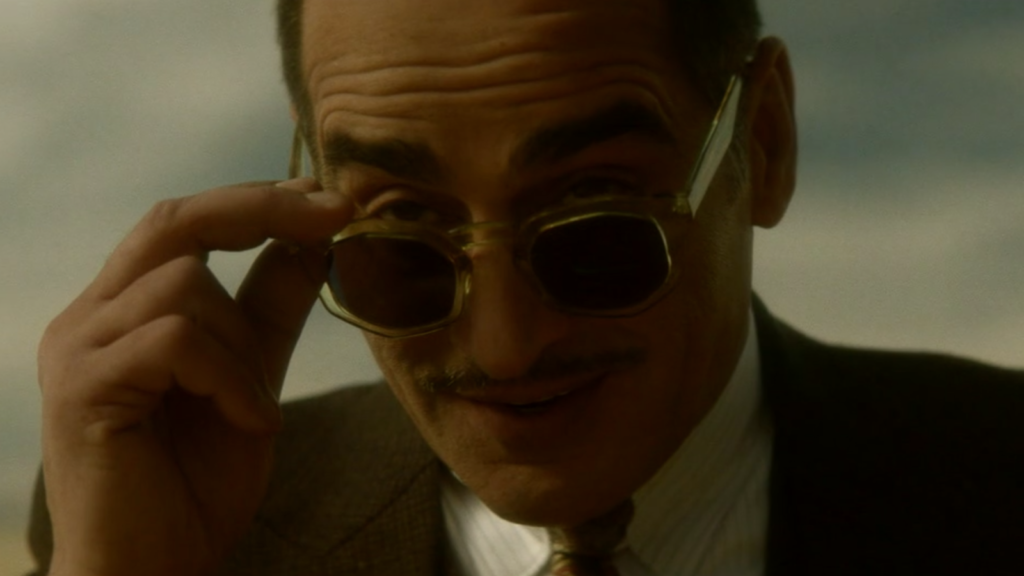
Short version… Navid Negahban was so good at this role I instantly stopped minding that Wonder Woman’s Saïd Taghmaoui quit the role for some damn fool reason.
After a season of hiding behind the masks of the World’s Angriest Boy in the World (their phrasing), the Yellow-Eyed Demon, and Aubrey Plaza’s Lenny, the Shadow King finally stepped into the light, appearing to David via their mental channel as his old self, Amahl Farouk. Farouk is a charmer, a sophisticate, and a master of mind games even beyond telepathy and mind control. He knows exactly how to manipulate the players, exactly how to twist David’s allies into enemies… and the cruellest ways to hurt his enemy. Negahban plays him as a perfect blend of gentleman and monster, and this is important… if you truly want to explore the notion that fighting a villain doesn’t automatically make you a hero, make sure it’s a properly villainous villain.
Gold: Pip Torrens & Graham McTavish as Herr Starr & The Saint of Killers, Preacher
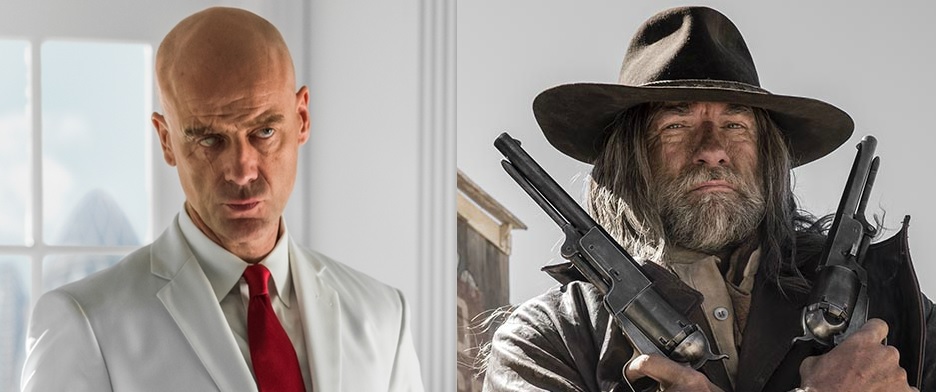
Preacher basically split into two halves in season two, and each had a perfectly cast, perfectly menacing villain coming after Jesse Custer and friends.
In the first half, after being teased throughout season one, the unstoppable cowboy terminator known as the Saint of Killers stalks Jesse from Texas to New Orleans, and Graham McTavish makes him absolutely terrifying.
And in the back half, Pip Torrens was perfect as Herr Starr: utterly humourless, utterly without empathy, shrewd, cunning, manipulative, and completely fascinating. Just witness his tryouts to gain his position in the Grail.
They’re both perfect, and I can only hope they’ll be making Jesse and company’s life difficult for years to come.
The Tricia Helfer Award for Rookie of the Year!
Named for the incredible impact Tricia Helfer had on the second season of Lucifer, this is an award for new characters on an established show who really added something to the program. And this year…
Um.
Well, this is slightly awkward. It’s Janet McTeer, Navid Negahban, and Pip Torrens again. Same order, even.
I suppose I could hand this out to Tala Ashe (Legends of Tomorrow) or Tom Welling (Lucifer), they were both good, but that wouldn’t be accurate. Fun as they were, they didn’t have the same effect on their shows as our medallist villains. Alisa Jones’ murderous rampage was key to Jessica’s post-Kilgrave character arc; Amahl Farouk gave David’s parasite-turned-nemesis a new and highly engaging face, allowing for real showdowns between them; and the arrival of Herr Starr kicks Preacher into high gear, just like it did in the comics.
So, see above, I guess? Moving on.
The Wentworth Miller Award for Best Guest Star!
For four years of the Arrowverse, seeing Wentworth Miller’s name in the credits meant we were in for a treat. Whether he was a recurring foil for the Flash, a crewman of the Waverider, a member of the Legion of Doom, or a benevolt doppelganger from Earth-X, Miller’s take on Leonard “Captain Cold” Snart was one of the most consistently great things in the franchise. Looks like he’s done now. They left a door open for a return, but he sure seemed to be doing a farewell tour.
So in honour of Captain Cold, a category for those who aren’t major regular or recurring characters*, but drop in for a handful of memorable episodes.
*At the moment. Snart was a regular on Legends for a season.
Honourable mentions: Jon Hamm as the narrator of Legion’s lecture sequences on madness and delusion; Matt Ryan brought his stellar take on John Constantine to a few episodes of Legends of Tomorrow, and it worked so well he’s a regular next season (YAY).
Bronze: Michael Emerson as Cayden James, Arrow
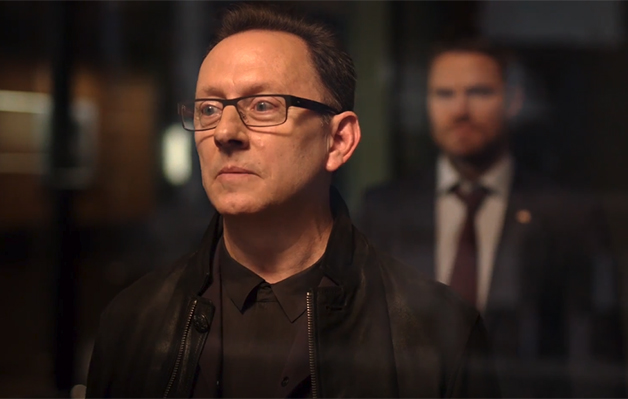
Nobody’s said “Mr. Queen” with quite this much menace since Slade Wilson.
Arrow once again went with a warm-up villain, while the real big bad got everything into place, and it couldn’t have asked for better than Michael Emerson. Cayden James is a crypto-terrorist who blames the Green Arrow for the death of his son, and takes his grief out on the entire city. This is a role Emerson could play in his sleep, after his fantastic roles on Lost and Person of Interest, but he showed up to work every episode he was in. There’s a reason Stephen Amell was excited to have him on the show.
Silver: Adrian Pasdar as Morgan Edge/General Glenn Talbot, Supergirl/Agents of SHIELD
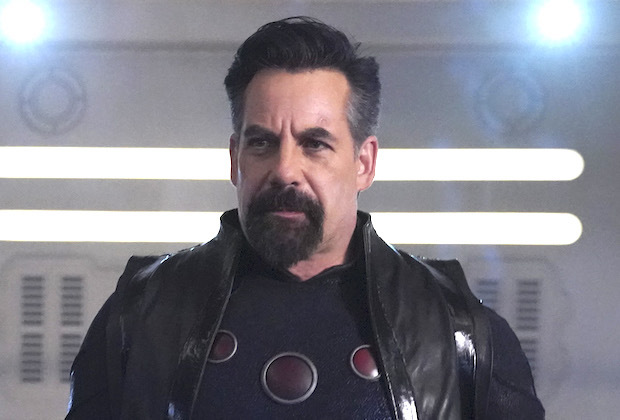
I’ve been a fan of Adrian Pasdar since the short-lived 90s series Profit, which ran for a few weeks when it debuted but would have run for five seasons and a reunion movie in today’s premium cable/streaming market. I’ve been a fan that long because he’s pretty consistently amazing.
This season he stopped by Supergirl for the season’s first act, providing an entertainingly sleazy adversary for Supergirl and Lena Luthor while Reign was blossoming. Then once National City didn’t need him anymore, he returned to Agents of SHIELD for their final act, and here’s where he soared.
Pasdar took General Talbot, both adversary and ally for the past four seasons, and brought him from stern general with brain damage-spawned anger issues to traumatized POW to a good man out for redemption to a formerly good man on a rapid slide into utter madness thanks to exposure to the world-bending element gravitonium. He went from broken ally to all-powerful madman at risk of cracking the Earth like an egg, and Pasdar made it a hell of a ride.
Gold: David Tennant as Kilgrave, Jessica Jones
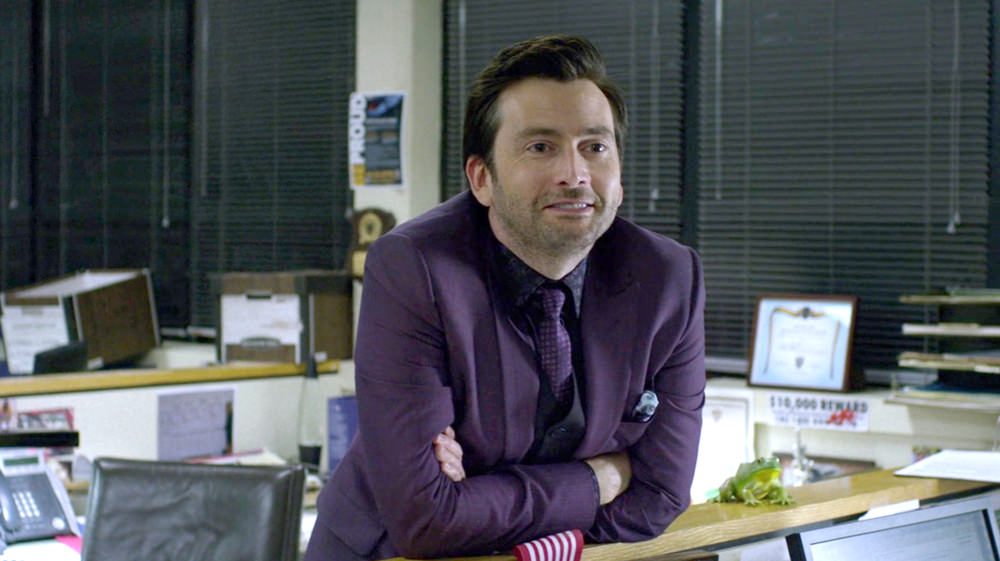
For one episode, David Tennant returned to Jessica Jones, as Jessica hallucinated her old abuser as a personification of her fears that she’s crossed too many lines to ever come back. After a violent incident, Jessica unravels, torn apart by guilt over her actions and fear that she’s nothing but a killer like her mother (after all, as Kilgrave points out in the line that gave the episode its name, she’s taken three lives and counting). And the more she spirals, the more imaginary Kilgrave pushes her towards the edge. In one episode we’re reminded of everything David Tennant brought to season one. While for Jessica’s sake it’s good he’s dead, it’s hard not to miss that purple bastard a little.
Also his rendition of Trish’s pop hit “I Want Your Cray-Cray” was pretty fun.
Whoof. Long one. Next time the rankings, which should go faster than last year.

